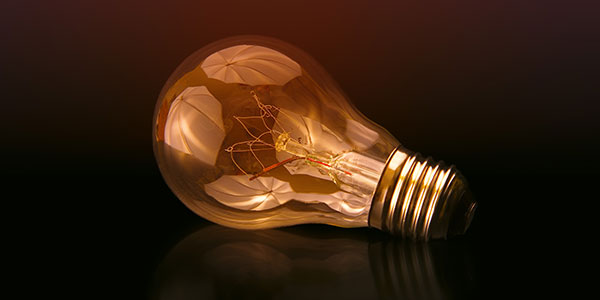10 Of The Top Mobile Apps To Use For Buy Fakes
본문
The Intricate World of Buying Fakes: Understanding the Appeal and Risks
In an ever-evolving market influenced by consumerism and fashion patterns, the appeal of counterfeit products-- frequently described as "fakes"-- has actually become a topic of widespread debate. From high-end bags and designer clothing to electronic devices and cosmetics, fake products record a significant part of consumer interest due to their perceived worth and price. This post looks into the diverse world of purchasing fakes, checking out both the mental and social aspects driving this phenomenon, in addition to the potential dangers related to it.
The Appeal of Buying Fakes
Purchasing fakes is mainly driven by several crucial incentives, including cost, availability, status enhancement, and social influence.
1. Cost Efficiency
- Cost: gefäLschte banknoten Kaufen (able2know.org) Fakes provide consumers with the possibility to own products that are otherwise out of financial reach. A luxury handbag that retails for ₤ 3,000 might be replicated and offered for a fraction of the price, making it appealing for individuals on a minimal budget.
- Viewed Value: Consumers may feel they are getting the very same quality and look as a high-end item without the substantial cost, which is attracting for lots of.
2. Sociocultural Factors
- Status and Identity: For numerous, purchasing high-end brand names symbolizes wealth, success, or social status. Fakes allow people to predict a certain image without the monetary concern, aligning with their wanted identity.
- Peer Influence: Social circles can play a significant function in encouraging the purchase of fakes. Trends often distribute within neighborhoods, leading people to follow suit for fear of being socially ostracized.
3. Ease of access and Convenience
- E-commerce Platforms: The increase of e-commerce, particularly markets like Alibaba, eBay, and social networks platforms, has actually made counterfeit items more accessible than ever. Customers can easily browse and acquire fakes from the comfort of their homes.
- International Distribution: Counterfeit goods are readily available worldwide, enabling access to items that might not be in your area available.
Types of Fake Products
When going over counterfeit items, it's essential to comprehend that not all fakes are created equal. The following classifications typically encapsulate the types of counterfeit items offered:
A. Fashion Items
- Clothes and Accessories: Imitations of designer clothing, shoes, and accessories prevail in the market.
- High-end Handbags: Replicated high-end handbags often attract considerable attention due to their recognizable branding.
B. Electronics
- Tech Gadgets: Counterfeit electronics, consisting of smart devices and devices, are typical, frequently marketed as premium brands at a lower price.
- Software: Pirated software application licenses and applications can likewise fall under the umbrella of counterfeit products.
C. Cosmetics and Personal Care
- Skin care and Makeup: Counterfeit cosmetics can be especially worrying due to security threats and regulatory issues related to components.
The Risks of Buying Fakes
While the allure of counterfeit products can be strong, possible buyers should consider the accompanying threats.
1. Legal Consequences
- Copyright Theft: Purchasing counterfeit products breaches copyright laws, and consumers might be punished depending upon regional legislation.
- Seizure Actions: In some nations, police have the authority to take counterfeit goods and impose fines on people caught purchasing them.
2. Ethical Implications
- Support of Criminal Enterprises: The counterfeit industry is often connected with orderly criminal activity, and customer participation can accidentally support unethical practices and exploitation.
- Impact on Genuine Brands: The proliferation of fakes undermines genuine organizations, adversely impacting their profits and brand integrity.
3. Safety and Quality Concerns
- Subpar Quality: Often, counterfeit items do not meet the quality requirements of authentic items, which can result in regular dissatisfaction.
- Health Risks: This is especially true for cosmetics and electronics, which might include damaging active ingredients or faults that posture safety dangers.
Buying Fakes: A Concluding Perspective
The practice of buying counterfeit goods is an intricate concern linked with economic, social, and ethical factors to consider. While attracting for lots of due to cost and access to high-end aesthetics, the negative repercussions expose the darker side of this consumer behavior. In a world where authenticity is progressively valued, comprehending the threats and gefälschte banknoten kaufen ramifications of buying fakes is essential.
Before buying, individuals must evaluate their motivations, the potential fälschungen legal kaufen and ethical ramifications, and ultimately choose what best aligns with their values and financial stability.
Frequently Asked Questions (FAQs)
Q1: Are counterfeit products prohibited everywhere?
A1: The legality of counterfeit goods differs by country. While some nations implement stringent laws against their sale and distribution, others may have more lenient policies.
Q2: How can I determine counterfeit items?
A2: Look for obvious indications such as bad workmanship, misspellings on labels, and rate discrepancies that appear too good to be real. Investigating legitimate brand names can likewise aid in identification.
Q3: What should I do if I unwittingly buy a fake product?
A3: If you discover that you have acquired a counterfeit item, consider reaching out to the seller for a refund if possible. You may also report the product to regional customer defense agencies.
Q4: Are there any advantages to buying fakes?
A4: While some argue that purchasing fakes can offer an opportunity to experience high-end items at a lower price, it is vital to weigh these perceived advantages against the legal falschgeld kaufen, ethical, and falschgeld kaufen Paypal health risks involved.

Q5: How can I support ethical consumerism?
A5: Supporting ethical consumerism includes buying from reputable brand names, promoting for transparency in the supply chain, and encouraging responsible company practices within your community.
By critically analyzing the impulse to buy fakes, 100% Echtes Falschgeld customers can make educated choices that ultimately add to a more ethical and sustainable marketplace.



댓글목록 0